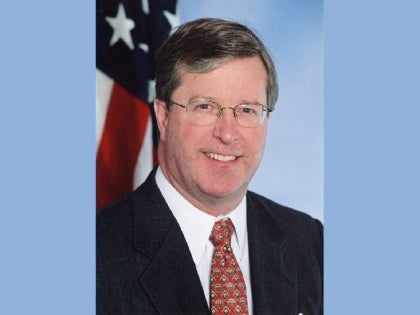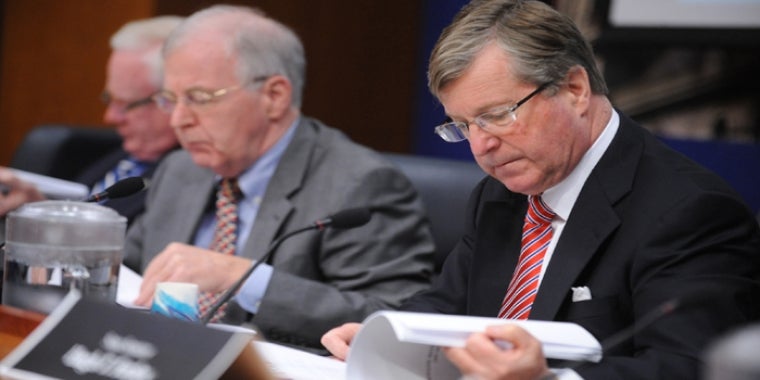
Last Year's State Budget Makes It Harder for Locals to Oversee Medicaid
George Winner
April 9, 2010
-
ISSUE:
- Medicaid

Albany, N.Y. – State leaders haven't settled differences over the 2010-2011 state budget, but as a result of provisions enacted by Governor David Paterson and the Democratic leaders of the state Legislature in last year’s budget, local officials across New York are now further hindered in their ability to effectively oversee Medicaid, State Senator George Winner (R-C-I, Elmira) said today.
“At a time when New York should be taking every possible step to control Medicaid spending, state leaders are making it harder for localities to control costs,” said Winner, who voted against the changes in last year’s budget. “The first thing we should do in this year’s state budget is to reinstate the eligibility tests. Then we should immediately enact a more aggressive system of Medicaid oversight and accountability.”
Winner and the eight members of the Senate Republican Task Force on Medicaid Fraud recently released a report and a series of recommendations for improving the state’s efforts to combat abuse, fraud, and overutilization in New York’s $52-billion system of Medicaid.
The task force believes that its initial recommendations point to annual savings of up to $500 million and should be included in the 2010-2011 state budget.
“Medicaid costs a billion dollars a week in New York. It’s gobbling up taxpayer dollars and local resources in alarming and unsustainable ways,” Winner said.
Despite the fact that they are on the front lines of implementing the Medicaid program, county officials have testified that the state inhibits their efforts to stop fraud at the local level. They pointed to the 2009-10 state budget enacted by Paterson and the Democratic leaders of the Legislature last April as an example. Last year’s budget eliminated the eligibility requirements for face-to-face interviews, finger-imaging and asset tests for applicants for Medicaid that are conducted by counties. The interviews are intended to ensure accountability in the system, but are no longer required as of April 1st.
Winner said that the task force is recommending the reinstatement of the asset-and-resource test for Medicaid eligibility determinations and to include the local Department of Social Services Fraud Unit as part of the application process. Other recommendations being pushed by Winner will empower localities to boost their own fraud-detection efforts, and more aggressively target waste and overutilization of services by:
-- authorizing the referral of all fraud cases to local district attorneys in order to reduce the timeframe for prosecuting cases while permitting counties to keep a portion of all fraud recoveries;
-- allowing counties to access the State Medicaid Data warehouse to improve local efforts to uncover billing patterns that point to possible fraud or overutilization of services; and
-- creating an automated system to alert county officials when residents become incarcerated and, consequently, ineligible for Medicaid benefits.
Overall the task force report, “Combating Medicaid Fraud in New York State,” paints a chilling picture of a state system of Medicaid rife with abuse. One in five New Yorkers are currently enrolled in Medicaid, a number that’s projected to increase to one in four by 2012.
Winner said that the urgency of the state’s fiscal crisis demands a renewed focus on the fraud that has plagued the Medicaid system for years. In his proposed 2010-2011 state budget, New York Governor David Paterson increased the state’s target for Medicaid fraud recovery by $300 million, which Winner said isn’t nearly enough.
-30-
Share this Article or Press Release
Newsroom
Go to NewsroomAccess to State and Local Government
December 29, 2010

Some Final Thoughts
December 27, 2010

Restore Voice of Rural New York
December 13, 2010

What About Economic Growth?
December 7, 2010
